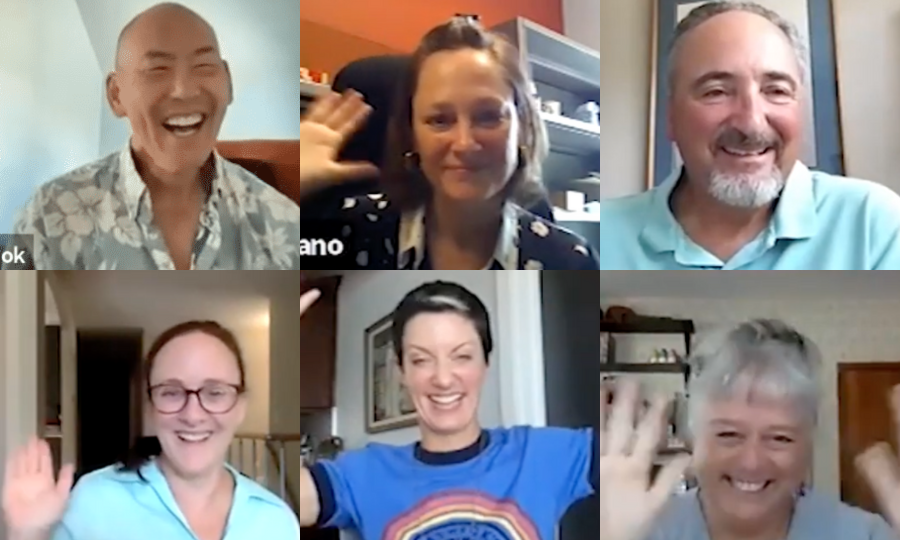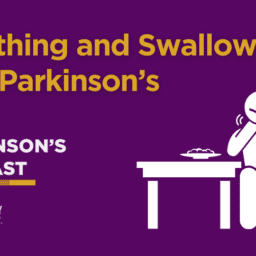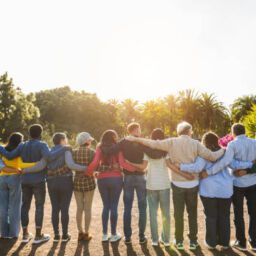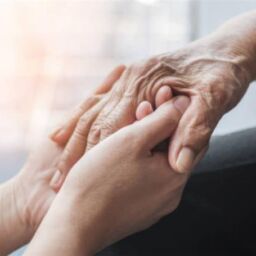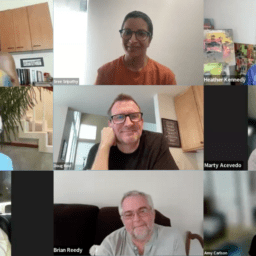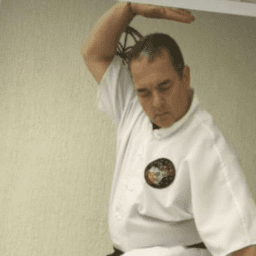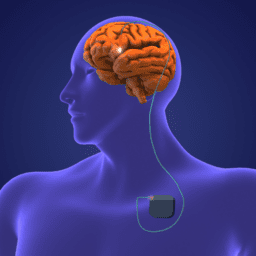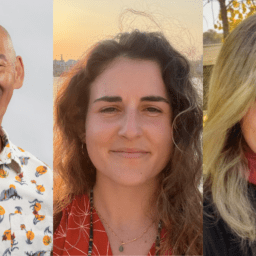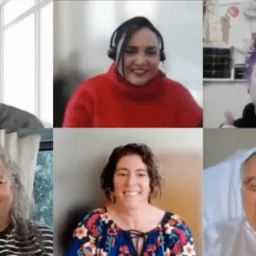[NOTE: Have a topic you’d like our YOPD Council to discuss in future sessions? We want to hear about it! Let us know what’s top of mind or any questions you’d like to ask panel members by filling out this form.]
During this session, our YOPD Council leaders answered YOUR questions, including their thoughts on topics including:
- Finding meaning and purpose in your life post-diagnosis
- How to deal with the highs and lows of living well with Parkinson’s
- Tips on medications and deep brain stimulation (DBS)
- Finding community and building support systems
You can watch the video below.
To download the audio, click here.
To download the transcript, click here.
(Note: This isn’t a perfect transcript, but it’s close.)
Show Notes
Q: If you have chosen to retire because of your Parkinson’s diagnosis or any other reason, how do you find meaning and purpose in your life?
Retiring from your profession can cause some sadness and loss of identity. These feelings are normal. For some of our panelists, contributing to the wellness of the Parkinson’s community has become the “work” that brings meaning in ways their previous careers did. For others, they choose to use this time to focus on the things that were less attended to when they were working full-time, such as family, friends, and enjoying the moment. Many emphasize the power of mindfulness and keeping a positive attitude about this new phase of life; some have used Kevin Kwok’s strategy of mindfully pivoting to find a new sense of purpose and joy.
Question: Any advice about DBS?
YOPD Council member Heather Kennedy recently had deep brain stimulation (DBS) surgery, and she advises those who have chosen to receive DBS to “be patient.” It has taken Heather approximately four months of trial and error with programming to see the positive results she was hoping for. (She also says that if other women have had DBS and aren’t seeing the results they’d hoped for, they should be sure to talk with their medical care teams about interactions that might be impacting the results. For her, an estrogen patch was interfering with the programming, and as soon as she removed it, she felt like a new person.)
Question: Tips on medications?
Parkinson’s physicians generally recommend starting medications as soon as your Parkinson’s symptoms start to impact your daily life. In retrospect, some of our panelists would have started taking meds sooner than they did, but others became severely ill when first taking medications and therefore explored homeopathic alternatives. As Kat Hill says, “It’s ultimately your decision on how you choose to handle your medications.” Talk to your doctor and consult with them throughout your Parkinson’s journey, but remember that you’re in charge of your care plan.
Question: What do you do when your soul gets tired of fighting and putting in the work to live well?
The YOPD Council members validate this feeling and the reality of depression. Their tips for how to pick yourself back up during these times include:
- Finding an activity that lifts you up when you’re down. For YOPD Council member Kevin Kwok, it’s traveling. For others, it’s calling a friend or getting lost in a good book
- Engage in social situations and call or text people in your support system. Just knowing that you’re not alone can be incredibly helpful
- Help someone else
- Remind yourself that what you’re feeling is impermanent and will pass
- If feeling this way is interfering with your quality of life, be sure and talk to your doctor. There may be medications and/or clinical techniques that can help
- Observe when you’re feeling down. If you pay attention to the times of day when you experience sadness or depression, you can more proactively prepare yourself for those moments. Amy Montemarano says she often feels more depressed in the evening, and in those times, she reads a book to give her brain something else to focus on
- Have pride in what you have accomplished.. Celebrate your victories, big and small
Question: A very important part of living well with Parkinson’s seems to be having people to talk to and a strong support system, but how do you find those people?
Community is such an important part of living well with Parkinson’s, but it can be difficult to know how to meet new people. Our panelists suggest finding connections through:
- Exercise classes
- Support groups (you can start you own if there’s not one in your area!)
- Volunteering with Parkinson’s organizations
- Choosing to be vulnerable enough to ask someone you’ve just met out for coffee
- Local community centers, senior centers, and other gathering places
resources and topics discussed
Camping with Parkinson’s Series
Take Your Parkinson’s for a Spin in the Great Outdoors
Get Connected by Reaching Out to a Ambassador
Medication Management For Motor Symptoms
Dopamine Agonists and Impulse Control Disorders
The Victory Summit® Virtual Event: Mental Health and Wellness
Living Well With Parkinson’s: A Conversation with Brian Grant and Davis Phinney
Helplessness and Hope and Parkinson’s
Want to Be notified for future YOPD Councils?
The YOPD Council meets on the third Thursday of every month, and every session is recorded and shared for all to access. Register for the YOPD Council series here, after which you will be invited to join live and be personally notified when a new webinar recording is posted. Interested in catching up on past YOPD Council webinar recordings? You can find all recordings on a variety of subjects on our YOPD Council Youtube playlist, and don’t forget to subscribe to our channel to be notified when new Youtube content becomes available.


